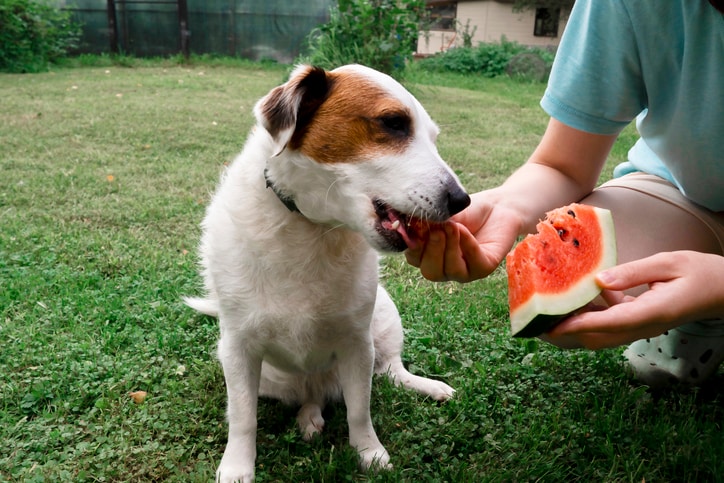Pepto-Bismol works wonders when you don’t feel well, but did you know it could be safe for your sick pup, too? Dogs with upset stomachs usually won’t eat, might act restless or could have diarrhea. When used for a limited time, Pepto-Bismol for dogs may be a good option for treating your buddy’s occasional tummy troubles.
“Pepto-Bismol and Kaopectate are bismuth subsalicylate products,” explains Dr. Bernadine Cruz, a veterinarian at Laguna Hills Animal Hospital in Laguna Woods, California. “Their main purpose is as an antidiarrheal treatment, and they can also be used as an intestinal protectant.” The key is not overusing Pepto-Bismol — so, if you give it to your dog, do so for a limited time only.
Proper Dosage
Make sure that if you decide to try Pepto-Bismol for your dog, you administer the correct dosage. “There is a high potential for your pet to overdose, especially if you have a really small dog,” says Dr. Denise Petryk, the director of veterinary services at Trupanion. So before you give any Pepto-Bismol to your dog, call your vet’s office first.
Dr. Scott Perry, a veterinarian at Arlington Animal Hospital in California, offers these instructions: “The dose of Pepto-Bismol is approximately 0.25 to 2 ml per 2 pounds of body weight, given three to four times per day.” Your vet can decode that into a dosage you can work with. Oh, and don’t ever give Pepto-Bismol to your cat!
How Do You Give Pepto-Bismol to Your Dog?
You have two choices — liquid or tablet form. Pills are easier to administer, but liquid is the better choice because you can be more accurate with the dosage. Dr. Cruz advises that you buy a dosing syringe and use that to draw up the correct amount of medication. Then insert the syringe into your dog’s mouth and slowly squirt the Pepto-Bismol toward the back of the mouth. Make sure you teach your dog sitter how to do this properly to avoid injuries to them or your dog.
If you try to squirt the whole thing in at once, you might be wearing the liquid when your pet spits it out at you. Dr. Cruz has found that most dogs like the medicine better when it has been refrigerated. Dr. Perry suggests giving the Pepto-Bismol with food, because the food helps with absorption and helps your dog keep the medicine down. So dose your dog right before or right after feeding time.
When Not to Use Pepto-Bismol for Dogs
Just because your dog has an intestinal upset doesn’t mean you should automatically turn to Pepto-Bismol. “If your pet has no interest in food or water, if the signs are worsening or if your pet has a bleeding disorder, Pepto-Bismol would not be the best choice,” says Dr. Cruz. If your dog’s problems have been going on for more than two days or if you see blood in the vomit or diarrhea, call your veterinarian.
Dr. Petryk offers another reason not to use this product: “Pepto-Bismol could quickly cause a stomach ulcer when combined with other medications your dog might be taking.” If your dog is taking any medications or supplements, first check with your veterinarian to see whether it is OK to give your dog Pepto-Bismol.
If your dog can’t take Pepto-Bismol, you have some other options. “Try feeding your pet a bland diet with cooked rice, boiled lean meats, low-fat or non-fat cottage cheese or tofu,” recommends Dr. Petryk. If your pup is truly uncomfortable, he might not eat at all. Other safe medications to try that might help with loose stools include Maalox, Mylanta, and Pepcid AC, adds Dr. Petryk.
When to See Your Veterinarian
If your dog has diarrhea and seems lethargic, won’t eat and is also vomiting, forget the Pepto-Bismol and take your dog to the vet. “Diarrhea may become a serious and life threatening condition if sufficient water or electrolytes are not replenished,” says Dr. Perry. Little dogs that weigh less than 25 pounds should automatically go to the veterinarian after a bout of diarrhea because they can easily become dehydrated.
Curious which other medications you have on hand can help your dog? Read about Benadryl for dogs.
Laura Agadoni is a pet writer and pet owner whose articles appear in various publications, such as The Daily Puppy, Pets on mom.me, The Nest, Tom’s of Maine, The Penny Hoarder and Trulia.

